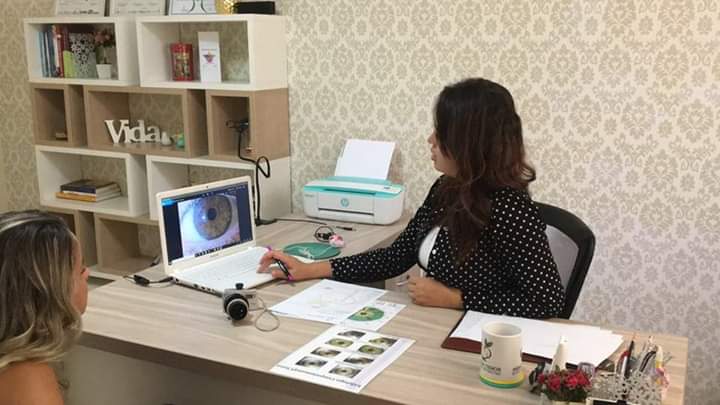Data from a recent survey (2019) conducted by FEBRASGO – the Brazilian Federation of the Gynecology and Obstetrics Associations, shows that 6.5 million Brazilian women do not see a gynecologist, 4 million have never been to one, and 16.2 million haven’t visited a gynecologist for over a year. (A survey by Ipsos reports that 54% of Canadian women do not visit a gynecologist or obstetrician yearly.) This scenario indicates that 20% of women aged 16 or older (i.e. one in five women) are at risk of gynecological problems due to lack of knowledge, neglect, and lack of prevention.
The average age at which a woman has her first visit to the gynecologist is 20 years, which is quite worrying because she has then skipped the initial consultation that should happen when the girl reaches the age of nine and her breasts begin to develop faster, her hair becomes longer, and the questions “When will I get my period?” and “What will it be like? Is it painful?” arise, as well as the swapping of experiences exchanged as school friends and cousins go through these experiences.
When to visit the gynecologist
The first menstrual period is called MENARCHE, which marks the beginning of a woman’s reproductive life, when the ovaries will begin to release an oocyte (present only in women) once a month, which, if fertilized with sperm (present only in men), generates a baby. The first two years after menarche are full of changes, such as mood swings, acne, cramps, altered flow, and irregular periods, which are often signs and symptoms of the body’s adaptation process when producing hormones. These situations lead to, or should lead to, the first visit to the gynecologist, which is of paramount importance for guidance, clearing up doubts, and performing the first specific examinations, such as a pelvic ultrasound to evaluate the uterus, endometrium, ovaries and fallopian tubes, which, despite its ugly name, is basically a camera that, with the help of a gel, will go over the belly, (just like in pregnancy ultrasounds).
The next essential gynecological routine visit is the premarital visit, where you will discuss and evaluate the best contraceptive method (to prevent pregnancy) for you, so as not to harm your physical and sexual health later. There will be blood tests to check your hormones, and the pelvic ultrasound we have already talked about. And don’t forget to advise your fiancé to also have his medical exams done too.
For women with an active sex life, the gynecological routine visit should be preventative and annual. Writer Ellen White recommends that an ounce of prevention is worth more than a pound of cure (Manuscript 86, 1897). During these routine visits, three exams will be performed. The Pap smear, which inherited its name from those who discovered its use for cervical cancer screening and which helps in early detection resulting in a greater chance of cure. Transvaginal and breast ultrasounds will also be performed, and if the patient is over 40 years old or has a family history of breast cancer, she will also need a mammogram.
Another time to visit the gynecologist is when you experience signs and symptoms of Perimenopause, such as irritability, insomnia, hot flushes, and vaginal dryness. This period is also sometimes called “menopause”, but the right name is perimenopause, ok? Because menopause is a date: the day that marks a full 12 months without menstruation. This happens because the production of the hormones of ‘young womanhood’ diminish and need to be dosed in the blood when these symptoms appear.
Now that we’ve covered the main events that should result in a visit to the gynecologist, let’s cover the visits that result from when something is bothering you. Most of the time these complaints are not age-related, so this goes for everyone. These are the main complaints that should lead to a visit to a professional:
- Leukorrhea (discharge), itching, and ill odor, these are signs of an infection and need to be treated. You do not need to experience the three symptoms, two already warrant the need for a visit to your gynecologist.
- Excessive cramps accompanied by intestinal changes during the menstrual period
- Dyspareunia (pain during sexual intercourse)
- Menstruation that lasts over one week more than once
- Urine leakage when sneezing and laughing, accompanied by increased urination at night
- The appearance of sores
- The emergence of a ‘lump’ in the breast.
- Breast discharge when not pregnant or nursing.
These are some of the most common issues, but, please, know your body so you can identify when something is not normal. As it says in the Spirit of Prophecy, knowing anatomy and physiology is a duty of everyone who has a body wishes to use it (Christ’s Object Lessons, 223-224).
Common questions asked during a gynecological visit
Below are the top questions asked in gynecological offices so you can feel ready and confident with every answer on the tip of your tongue before your visit.
- What was the date of your last period?
* You answer with the first day your last period began. - How old were you when you had your first period?
- Have you ever been pregnant? Were the births natural or caesarean? Have you ever had an abortion?
- Do you have an active sex life?
- What method do you use to prevent pregnancy?
- What was the date of your last exam? Do you have the results with you? Are you allergic to any medication?
- Do you take any medication? Which ones?
- Are there any cases of gynecological diseases (breast, cervical, and endometrial cancer) or thrombosis (circulation problems) in your family?
- Did you breastfeed?
- Have you had any gynecological surgery? (tubal ligation, fibroid removal, tumor or uterus, perineum, etc.)
- Have you recently been hospitalized?
Choosing the right professional
Last, but not least, I ask that you choose your gynecologist professional with care, but don’t do it alone. Pray and ask our heavenly Father to help you, refer you to the one you need, ask for advice from people close to you, and seek a qualified professional in this area (Gynecologist or GYN Nurse) who can be identified by his/her credentials which should be displayed, as well as in your region’s Medical Professional Directory.
My wish is that you love God above all things so that you have a strong desire to take care of the temple He has entrusted to you. God bless you!







2 thoughts on “A Visit to the Gynocologist – When to see one, what to expect, common questions”
Pingback: After the "I Do" — A guide to your first night together
Interessante